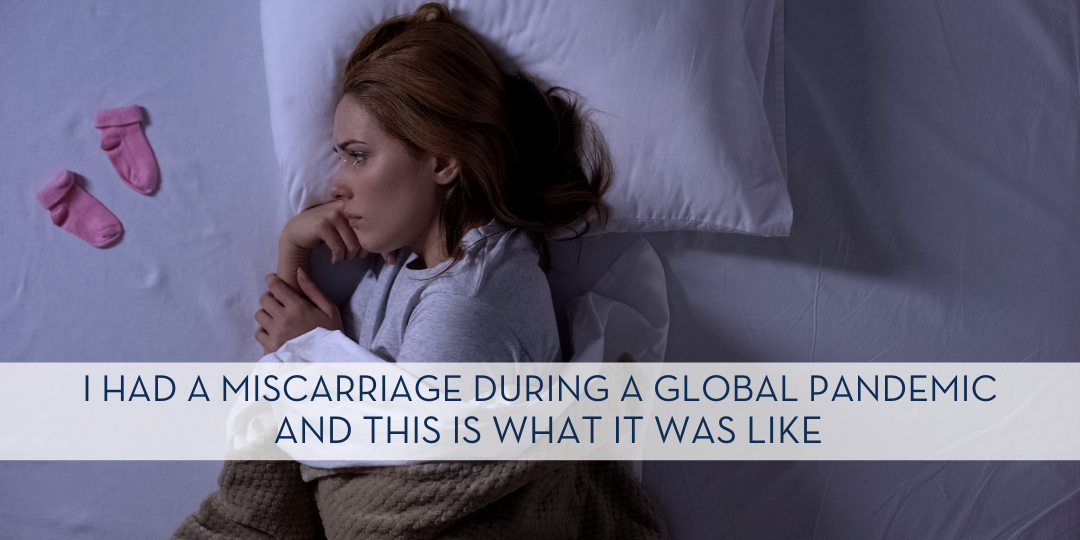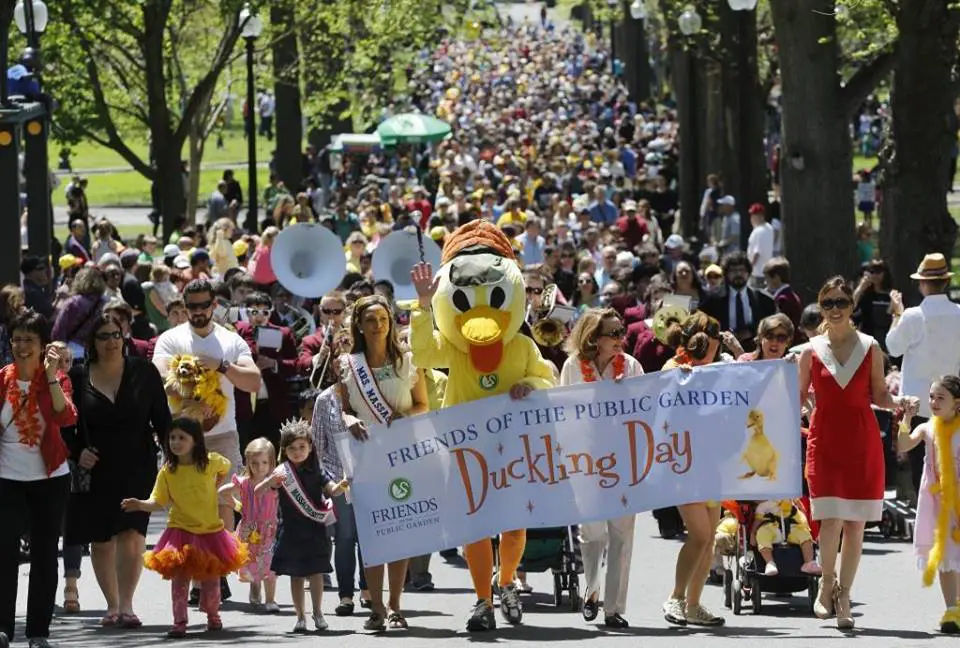Words I never imagined I’d have to type or say out loud: I had a miscarriage. And, not only did I have a miscarriage, I had one during a global pandemic.
While there have been numerous articles and reports detailing the disproportionate weight mothers have carried during this pandemic, I have yet to see a post about what it’s like to lose a pregnancy amidst all of the restrictions and limited care available due to COVID-19. What I’ll share here is my story.
This was my first and only miscarriage, so I have no other experience to compare it to. However, the lack of available information and care was enough to make me think this experience might have been different outside of a pandemic. As the owner of a business that is solely focused on supporting moms, I feel compelled to share. This is deeply personal, but I hope it will help another mom who is walking this path now, in the time of COVID-19, or in the future.
My husband and I had decided our family was complete. I had had an incredibly traumatic pregnancy and delivery with our last baby, and while we had always dreamed of having four children, we were certain we didn’t want to walk the path of a high-risk pregnancy again.
And then we found out we were pregnant.
You know the saying, “You plan, God laughs?” This was one of those situations. In absolute shock, I called my OB and requested an appointment ASAP to ensure I would be safe and would receive care right away. They scheduled my first prenatal appointment for when I would be 10.5 weeks pregnant. This was my fourth pregnancy and the longest I would wait to see a doctor for any of them, but with the current climate in healthcare and possible COVID risks, I didn’t feel the need to rush in to the office. However, after a few days of anxiety, I called and requested a meeting with the doctor ahead of that first appointment. The office obliged but could only offer a telehealth visit. Ah, yes. Pandemic care.
We met with my OB on Zoom, and she was compassionate and lovely. She eased our fears and suggested we talk with a high-risk OB to ensure that if this pregnancy became complicated, he’d be well aware of my situation and care. We spoke with him the next day. That should have been an in-office visit, but it occurred over the phone too. Because of course, pandemic care. He did request an earlier ultrasound to be scheduled for one week later, instead of having to wait until nearly 11 weeks pregnant, which I was grateful for.
When I was 8 weeks 6 days pregnant, I saw our baby on the ultrasound monitor for the first time. I had been experiencing some spotting for a few days, so my husband drove me to the appointment and waited anxiously in the car — no partners were allowed in the office. Remember? Pandemic care. I tried to Facetime him from the exam room, but it didn’t work. Instead, I grabbed a quick video of our little bean bouncing around, its tiny heart fluttering. We were thrilled. I was told to return in a few weeks for another ultrasound and bloodwork.
A few days later, I started truly bleeding. It was a February Saturday morning, and my OB’s office was closed. Panicked, I called the on-call physician, who told me to take it easy and not stress. They had seen my baby’s heartbeat, and because of that it was unlikely to be anything serious and was likely an unrelated bleed. She said if I felt the need, I could go to the ER. But, we’re in a global pandemic, so I wanted to avoid the hospital and any COVID exposure if possible. I spent the weekend in bed.
On Tuesday morning, I began bleeding heavily. I knew something was seriously wrong. I called the OB’s office as soon as they opened and requested an ultrasound. They were able to squeeze me in at a satellite office for later that morning.
An ultrasound tech performed an extensive transvaginal ultrasound and never once let me see the screen. She didn’t say a word to me the entire time and didn’t even look at me. I knew. After the exam was over, I asked sheepishly, “Is there a heartbeat?” She said she wasn’t able to tell me anything, and that she’d go find a doctor. I sat on a giant absorbent pad in the empty exam room for 20 minutes waiting, until she came back and told me no OB doctors were on the premises and she was trying to call my home OB office to see “what to do with me.”
I thought maybe my baby was OK but that I had a major bleed and needed to go to the hospital. I had hope. I hobbled out to the waiting room to wait for a doctor. My husband texted me from the car frantically, furious that they had me waiting so long for any sort of news.
A few minutes later I heard my husband pleading with the woman who was guarding the front door to let him in to sit with me. She broke the rules for us, and I’ll always be thankful for that. Waiting rooms are exceptionally lonely during a global pandemic.
And then my phone rang. It was an OB from my office, who let me know that while my baby was measuring on schedule, its heart had stopped beating. I was having a miscarriage. The ultrasound tech never came back out to the waiting room. No doctor ever saw me that day. I slumped over in the waiting room chair in hysterics with other patients waiting and watching me. This is not news that should ever be delivered over the phone in a public waiting room, but this is what I experienced while having a miscarriage during a global pandemic.
The OB who called said I had two choices. I could go home and ride out the miscarriage at home, or schedule a D&C. But, because it’s a global pandemic, I’d have to have a negative COVID test prior to my surgery, so the earliest I could be seen would be two or three days later. She thought it was likely my body would do its own work by then. My husband ushered me out of the waiting room — I was hysterical and embarrassed — and I went home to ride out what would become the hardest and most painful five days of my life.
I never received a follow-up call. No pamphlet. No “what to expect when you’re no longer expecting.” I called the office twice to ask questions about the horror I was experiencing at home. If I had been seen in person by a doctor, I believe they would have advised me of these things ahead of time. I would have been better counseled and better prepared if I had seen a doctor in person. If I hadn’t needed a COVID test prior to my surgery, I could have had a D&C the next day and had a different (still traumatic) experience. But, I had a miscarriage during a global pandemic.
While the medical care I received was absolutely not on par with what I believe I would have received in a more typical year, the complications of having a miscarriage during a global pandemic didn’t end there.
When we were delivered the news that our baby no longer had a heartbeat, we hadn’t even told our families we were expecting yet. I hadn’t told my colleagues at work. I hadn’t told friends or neighbors. This isn’t because we were being secretive — it was because we hadn’t SEEN anyone. Our family strictly adheres to COVID guidelines to ensure that our oldest son can go to school and that my husband and I can work. Not seeing people makes it pretty easy to keep news private — even happy news! But, in this case, I would have loved to have had immediate support from the people who know us the best.
For our past pregnancies, we let our family and friends in on the news very early on. This time, in the same breath that we shared our sad news, our close circle found out we had been harboring happy news. When friends and family found out what was happening, many offered to come and lay with me… but they couldn’t. Many remarked that they wished they could just come and cry with me. But, because of COVID precautions, they couldn’t. Miscarriage during a global pandemic is its own kind of lonely.
I have three small children at home, and only one person in our COVID “bubble” who is available to care for them when I am working or unable to: my mother-in-law. Thankfully, after we shared our sad news with her, she was willing and available to help with our kids. If I hadn’t had her help and was parenting without any available childcare like many women are doing during this global pandemic, my experience would have been even harder.
I am now on the other side of miscarriage. I am regaining strength after extreme blood loss, my appetite is returning, and I’m feeling less like I’ve been hit by a truck. I am dreading seeing people in person and returning to work, though, so I’m taking that step by step. Having a miscarriage during a global pandemic allows for me to stay sheltered in my house for a while longer while I heal physically and mentally. That might be the only positive part of this entire ordeal.













